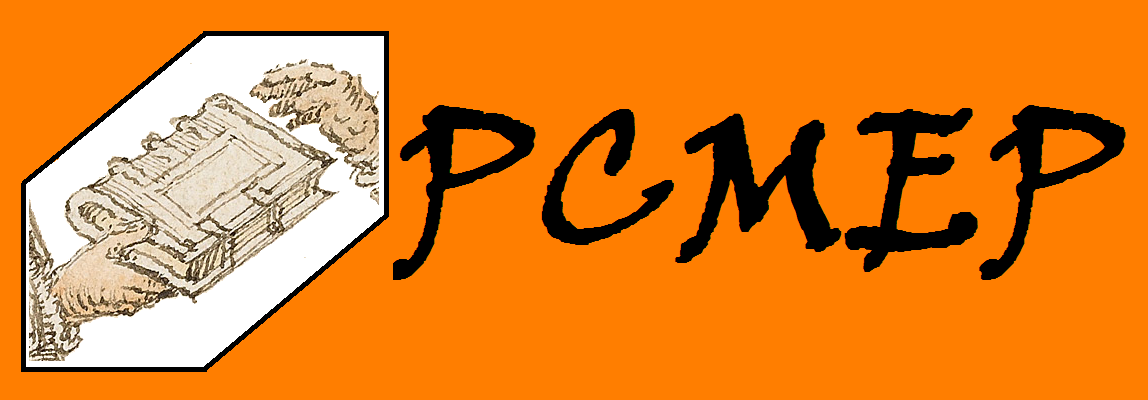The Parsed Corpus of
Middle English Poetry (PCMEP)
PCMEP Text Information
The Thrush and the Nightingale
Back to PCMEP texts
About the text:
About the edition and manuscript base:
About the file:
Other:
| Text name: | The Thrush and the Nightingale |
| Alternative names: | Summer is comen with love to toun |
| Content: | The Thrush and the Nightingale begins with the poet overhearing a debate between a thrush and a nightingale on a beautiful May morning. The thrush attacks women as treacherous and moody. The nightingale defends women as peaceable and devoted. The debate continues. When the thrush is reminded that Jesus was born of the virgin Mary, a woman, he concedes that he was wrong. He promises never to speak ill of women again and flies away. |
| Genre/subjects: | debate, bird debate, dialogue, philosophy, feminism, birds |
| Dialect of original composition: | Unknown, probably West Midlands There appears to be little language mixture in the poem as it survives today. For example, rhymes are not generally spoiled. It is thus probable that the West-Midlands dialect of the manuscript and the dialect of the original are identical. |
| Date of original composition: | 1260-1282 The latest possible manuscript date, 1282, provides the terminus ante quem for the composition of the text. The original poem is "probably of the reign of Edward I" [1272-1307] (Wells 1916: 422). |
| Suggested date: | 1270 |
| PCMEP period: | 2a (1250-1300) |
| Versification: | sixteen stanzas, twelve-line, aabccbddbeeb (with the exception of the first stanza, which is aabccb-ddeffe) "the b verses of three, the rest of four stresses" (Wells 1916: 422) |
| Index of ME Verse: | 3222 (IMEV), 3222 (NIMEV) |
| Digital Index of ME Verse: | 5052 |
| Wells: | 9.9 |
| MEC HyperBibliography: | Thrush & N. |
About the edition and manuscript base:
| Edition: | Brown, Carleton F. 1932. English Lyrics of the XIIIth Century. Oxford: Clarendon. 101-7. |
| Manuscript used for edition: | Oxford, Bodleian Library, Digby 86 (SC 1687), ff. 136v-138r |
| Online manuscript description: | LAEME Manuscripts of the West Midlands (item 48) Summary catalogue of Western manuscripts in the Bodleian Library at Oxford, no. 1687 |
| Manuscript dialect: | West-Midlands The manuscript language has been localized to Gloucestershire or Worcestershire (McIntosh et al. 1986: 197). Support for the view that the manuscript is from the West-Midlands is also provided by external evidence surrounding a kalendar of saints from the diocese of Worcester, the occurrence of the place names Ridmerley and Pendock, and references to three Worcestershire families (Brown 1932, Miller 1963). |
| Manuscript date: | s. xiii-ex The manuscript has been dated to 1272–1282 (Tschann & Parkes 1996: xxxvi–xxxvii, Wells 1916: 422). |
About the file:
| File name: | M2a.ThruNight |
| ID: | ThruNight,v.w.x.y[z]: v=token, w=page number, x=line number, y=stanza {Heading, Stanza 1-16}, z=speaker The speaker is either the narrator, Thrush or Nightingale. |
| Word count: | 1,108 |
| Token count: | 124 |
| Line count: | 192 |
Other:
| General notes: | No. [52] in Brown's 1932 edition. A shorter, imperfect version of the text exists in the well-known Auchinleck manuscript. For differences between the Auchinleck version and the poem used in the PCMEP, see Brown (1932: 207-209). The Thrush and the Nightingale is an animal debate poem and may have been influenced by the more famous poem The Owl and the Nightingale, which is also included in the PCMEP. |
| Remarks on parses: | There is a French heading, Ci comence le cuntent parentre le Mauuis & la russinole. It is included in the PCMEP file as a FRENCH token with each of the words tagged as FW. Brown indicates in the margin if a sentence is spoken by the thrush or the nightingale. Sentences uttered by the thrush and the nightingale, but not by the narrator, are tagged as direct speech. There is a slight deviation from Brown's devision of speakers: lines 103-5, Stanza 9, Of muchele murþe hy telleþ me. /Fere, al so I telle þe, /Hy liuieþ in longinge., are spoken by Thrush, not by Nightingale. Each token is attributable to exactly one speaker. The line breaks follow the rhyming scheme as indicated in Brown's (1932: 101-7) edition. The parses are largely unproblematic. |
References
Brown, Carleton F. 1932. English Lyrics of the XIIIth Century. Oxford: Clarendon.
McIntosh, Angus, Samuels, Michael L. & Benskin, Michael. 1986. A Linguistic Atlas of Late Medieval English. Aberdeen: Aberdeen University Press.
McIntosh, Angus, Samuels, Michael L. & Benskin, Michael. 1986. A Linguistic Atlas of Late Medieval English. Aberdeen: Aberdeen University Press.
Miller, Brian D. H. 1963. 'The Early History of Bodleian Ms. Digby 86.' Annuale medievale 4. 26-56.
Tschann, Judith & Parkes, Malcolm. 1996. Facsimile of Oxford, Bodleian Library, MS Digby 86. EETS s.s.16. Oxford: Oxford University Press.
Wells, John E. 1916. Manual of the Writings in Middle English, 1050-1400. New Haven, CT: Connecticut Academy of Arts and Sciences. (available online)
